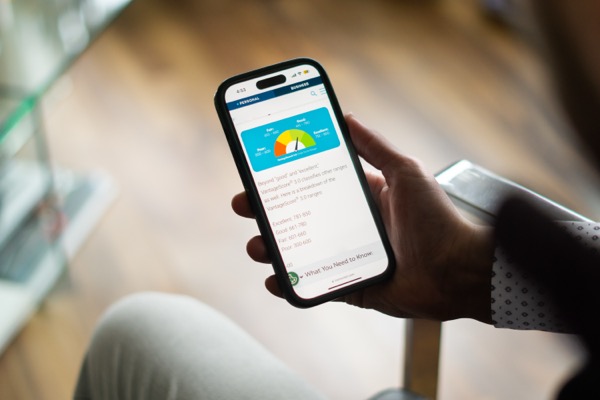Improving your credit score before buying a home? Great idea! Here are 5 tips to help you raise your credit score for homeownership.

Can you buy a house if you have debt?
Buying a home if you have debt might seem like a bad idea when you write all the numbers down. If you’re already in debt, why add to it with a giant expense? You might think a lot of things could go wrong, and there’s probably no way you’d get mortgage financing, anyway. We’re so used to seeing debt as the be-all and end-all to our finances. However, this isn’t always true with home buying!
Debt is all relative to the rest of your situation. Bigger picture, it’s only one metric that helps determine whether or not you’re suited for homeownership right now. That doesn’t mean it’s something to forget about. It just means you should consider other factors that are equally important.
Debt service ratios
First, let’s take a look at this term. These are tools lenders use to figure out your creditworthiness, which impacts their decision to finance a mortgage. Debt service ratios will tell a lender if you can afford a mortgage. These are important factors to keep in mind when you’re considering buying a home.
Gross Debt Service (GDS)
GDS is the percentage of your monthly income you use to cover any housing expenses. Basically, how much would it cost you to own the property? GDS includes payments for mortgages, property taxes, heating, and any other relevant association fees. These costs are added up and divided by your gross monthly income. In general, that income is more important than debt. If your income supports high levels of debt, this might be okay as long as you’re within your GDS range.
According to CMHC, your GDS ratio shouldn’t exceed 35%. Any score below 35% is considered satisfactory – the lower the score, the better. Lenders may be flexible with these scores, though. It’s not impossible for a lender to consider a score of 39% reasonable, for example.
Total Debt Service (TDS)
TDS is similar to GDS. This is the percentage of your monthly income you use to cover any housing expenses, plus any other debts you have. These can include credit cards, lines of credit, and car payments. Again, TDS is calculated by adding up all these costs and dividing it by your gross monthly income.
Your TDS ratio shouldn’t be over 42%, according to CMHC guidelines. Once again, lenders can be flexible with these ratios.
Lowering your ratio
Are your GDS/TDS ratios a little too high? Lower ratios tell lenders you’ll be able to repay your loans. If you have debt that heavily impacts your ratios, you might need to work on lowering them. Paying down your high debt levels will help you qualify for a mortgage loan. Check out this post for more information on debt service ratios, and how to get them down.
Are there more pros or cons?
Just because you can buy a house with debt, does that mean you should? There are potential pros and cons, and they really depend on you. If you’re on the fence about your next move, consider these.
Pros
Buying a house now, in 2021, means getting a home with a low interest rate. By now, you’re probably sick of hearing about low rates, but they matter! We haven’t seen rates like these in years, so taking advantage of them now might be a smart move. You can reduce your interest payments and therefore contribute less to your pre-existing debt. With home costs constantly rising, it’s not a bad idea to get in the market now.
A simple fact is the sooner you own a home, the sooner you start building equity for that home. Equity helps your net worth, and you want to build that up as much as you can. If you have debt but you see an opportunity to own a home that will build equity fast, that might be a good reason to buy.
Cons
However, when you buy a house in debt you run the risk of biting off more than you can chew. Will a mortgage, plus your existing debt, back you into a corner where you have nothing left over? Don’t forget about saving for other necessary expenses.
You might also find yourself with a smaller mortgage loan from your lender. This goes back to your debt service ratios. A lender might still approve you for a loan if your ratios are on the higher side. Undoubtedly, though, the loan will be smaller.
Your debt is unique
At the end of the day, debt is all relative to you. Everyone’s situation is different, meaning there’s not one solution that works for everyone. It comes down to your income and debt levels, and the size of home you want to buy.
Debt doesn’t automatically mean you can’t qualify for a mortgage, but don’t wait to start dealing with it! Get started sooner rather than later. This way, you won’t get into issues when you’re already in the homebuying process. You can check out some tips to help handle your debt here.
If you’re hoping to buy a home while in debt and have questions about getting a mortgage, contact us at Clinton Wilkins Mortgage Team! You can call us at 902-482-2770 or get in touch here.


